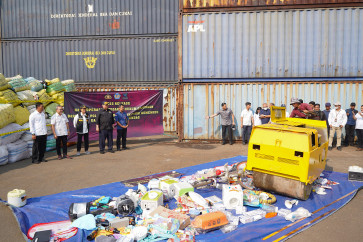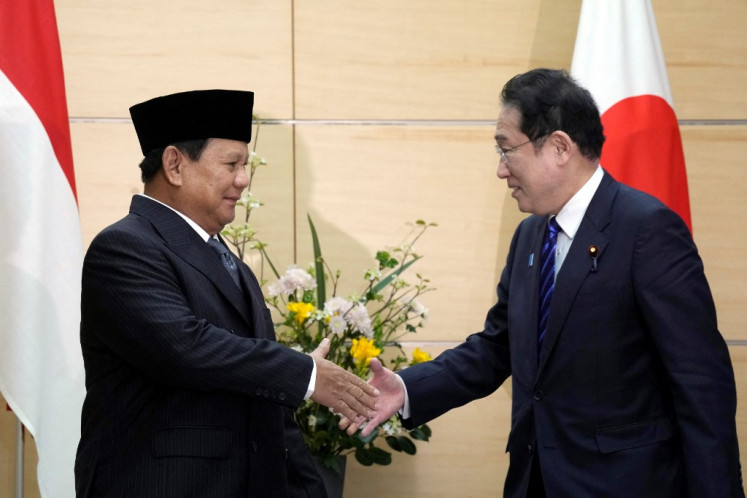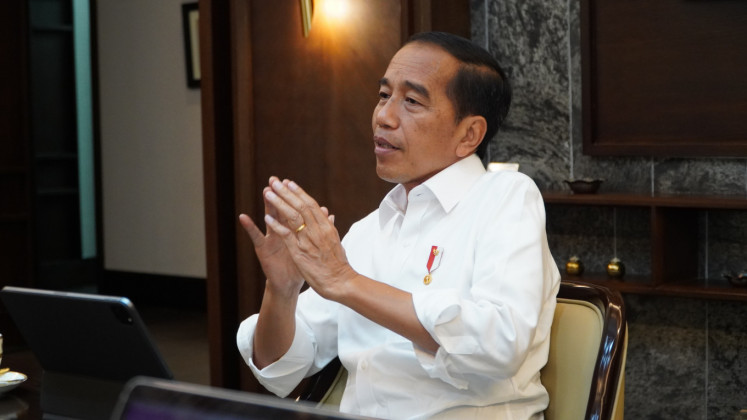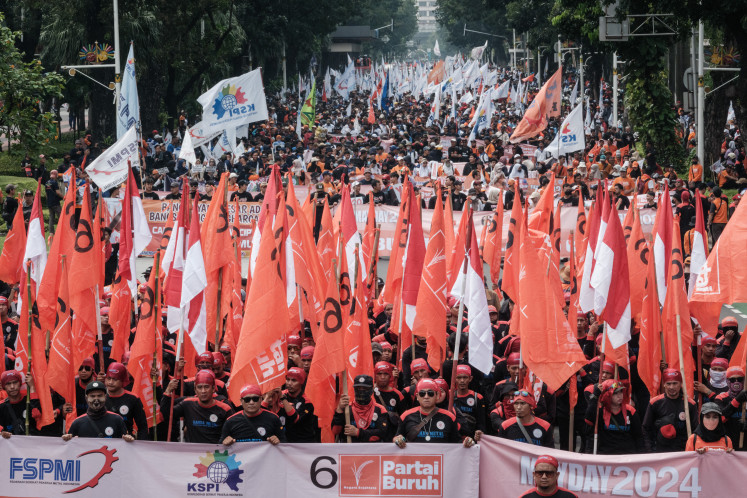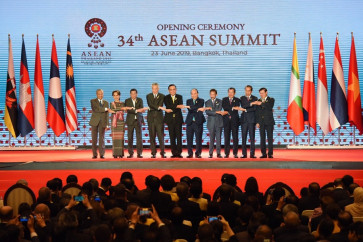Is AUKUS a problem or blessing for ASEAN?
There is no use to try to find a consensus or a common view among ASEAN member states whether AUKUS is either dangerous or beneficial to the region.
Change Size
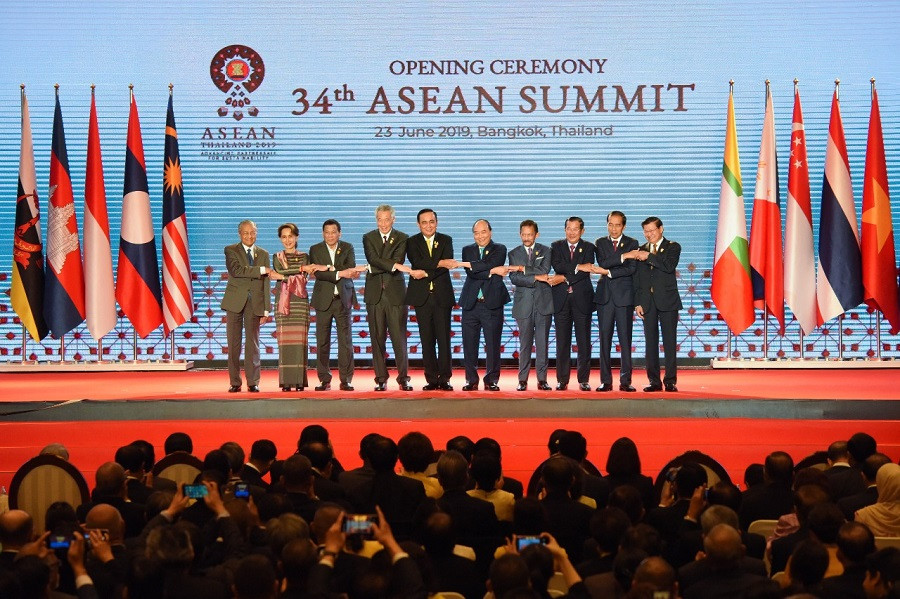 Show of solidarity: ASEAN leaders pose during the opening ceremony of the 34th summit of the regional grouping in Bangkok on June 23, 2019. During the summit the leaders approved the ASEAN Outlook on Indo-Pacific. (AFP/Tang Chhin Sothy)
Show of solidarity: ASEAN leaders pose during the opening ceremony of the 34th summit of the regional grouping in Bangkok on June 23, 2019. During the summit the leaders approved the ASEAN Outlook on Indo-Pacific. (AFP/Tang Chhin Sothy)
T
he announcement of AUKUS –a new security arrangement involving the United States, the United Kingdom and Australia – has attracted all sorts of reactions from many quarters.
It is interesting to note that analysts and international relations specialists have been watching how ASEAN member states responded to the announcement. ASEAN members’ attitudes toward AUKUS have been described as ranging from anti (Malaysia) and supportive (Singapore, Vietnam, the Philippines) to uneasy (Indonesia) and uncertain or neutral (the rest of ASEAN).
The focus has also been on the possible or perceived implications of AUKUS for the region. Some argue that AUKUS, which paves the way for Australia to acquire nuclear-powered technology will have negative implications for nuclear non-proliferation. Others argue that AUKUS will invite a negative reaction from China, hence it will trigger an arms race and heighten conflict in the region.
One of the key elements highlighted by the critics is the extent to which the agreement presents a threat to ASEAN and Southeast Asia. For example, Kompas.id reported that France’s ambassador to Indonesia, Olivier Chambard, told a group of Indonesian journalists on Sept. 24 that AUKUS would not bring peace to the region but rather it posed a real threat to ASEAN. In Beijing, the Chinese Foreign Ministry’s director general for Asian affairs, Liu Jinsong, told a group of ambassadors from ASEAN member states that AUKUS “not only undermines the Southeast Asia Nuclear Weapon-Free Zone Treaty [SEANWFZ] but could spur regional arms races and create tension and division.”
Is AUKUS really a threat to ASEAN and Southeast Asia? If so, what forms would that threat take and how to address them? For one, the argument that AUKUS will soon turn Southeast Asia into a theater of war between China and the US is not very persuasive. It is even less convincing to argue that AUKUS will serve as the primary cause for other countries in the region to embark on the same quest to acquire nuclear-powered submarines. As for the SEANWFZ treaty, it remains an aspiration and has long been undermined anyway, with or without AUKUS, by the refusal of nuclear-weapon states to sign the protocols.
The real problem actually is not the establishment of AUKUS per se, but the underlying strategic context and circumstances within which such a strategic initiative – namely the formation of AUKUS – inevitably took place. That strategic context is the strategic rivalry between the US and China, and how the behavior of the two great powers affects other countries’ threat perceptions in the Indo-Pacific. A realistic perspective can provide at least three main answers to the question as to why AUKUS happened.
First, AUKUS is simply a logical consequence of the US-China rivalry. As the existing power, the US has concluded that China has now reached a position that can challenge US primacy, especially in the Indo-Pacific region. China, as a rising power, especially with the spectacular increase in its military capability and growing political influence, is perceived to have the potential to upset the balance of power.



